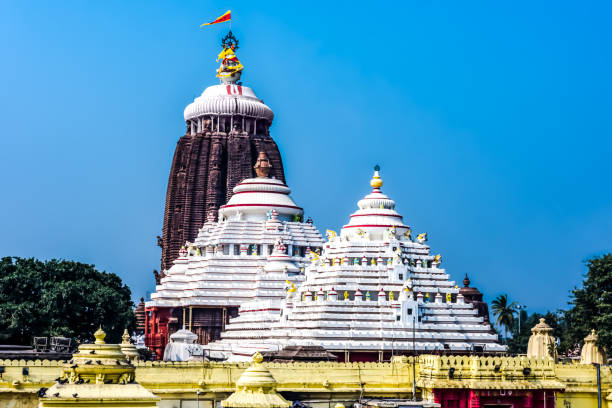Jagannath Temple | 24 Jan 2023
Why in News?
Recently, Odisha Governor Ganeshi Lal has backed the entry of foreign nationals inside the world-famous Jagannath Temple in Puri, wading into a debate that has lasted for decades and periodically triggered controversy.
- Currently, only Hindus are allowed inside the shrine to offer prayers to the deities in the sanctum sanctorum.
- A sign at the Lion’s Gate (main entrance) of the Temple clearly states: “Only Hindus are allowed.”
Why are Non-Hindus not Allowed in Jagannath Temple?
- It has been the practice for centuries even though there is no clearly articulated reason for it.
- Some historians believe that multiple attacks on the Temple by Muslim rulers might have led the servitors to impose restrictions on the entry of non-Hindus.
- Others have said that this was the practice from the time the Temple was built.
- Lord Jagannath is also known as Patitapaban which literally means “saviour of the downtrodden”.
- So, it is believed that, all those who are barred from entering the Temple because of religious reasons get the privilege of a darshan of the Lord in the form of Patitapaban at the Lion’s Gate.
- Example:
- In 1984, servitors of the Temple opposed Indira Gandhi's entry due to her marriage to a non-Hindu.
- In 2005, a Thai princess was only able to view the Temple from the outside as foreigners are not allowed.
- Also in 2006, a Swiss citizen was denied entry due to her Christian faith despite her large donation.
What are the Key Facts about Jagannath Temple?
- The temple is believed to have been constructed in the 12th century by King Anatavarman Chodaganga Deva of the Eastern Ganga Dynasty.
- Jagannath Puri temple is called ‘Yamanika Tirtha’ where, according to the Hindu beliefs, the power of ‘Yama’, the god of death has been nullified in Puri due to the presence of Lord Jagannath.
- This temple was called the “White Pagoda” and is a part of Char Dham pilgrimages (Badrinath, Dwaraka, Puri, Rameswaram).
- The temple is known for its unique architecture, which includes a massive compound wall and a large temple complex with multiple towers, halls, and shrines.
- The temple's main attraction is the Annual Rath Yatra festival, in which the three main deities of the temple, Lord Jagannath, Lord Balabhadra and Devi Subhadra are taken out in a grand procession on a chariot.
- The temple is also known for its unique food offering, the Mahaprasad, which is prepared in the temple kitchen and is distributed among the devotees.
What are the Other Popular Monuments of Odisha?
UPSC Civil Services Examination, Previous Year Questions (PYQs)
Q. The Prime Minister recently inaugurated the new Circuit House near Somnath Temple at Veraval. Which of the following statements are correct regarding Somnath Temple?
- Somnath Temple is one of the Jyotirlinga shrines.
- A description of Somnath Temple was given by Al-Biruni.
- Pran Pratishtha of Somnath Temple (installation of the present day temple) was done by President S. Radhakrishnan.
Select the correct answer using the code given below:
(a) 1 and 2 only
(b) 2 and 3 only
(c) 1 and 3 only
(d) 1, 2 and 3
Ans: (a)
Exp:
- Somnath temple stands at the shore of the Arabian ocean on the western corner of the Indian subcontinent in Gujarat State.
- Shree Somnath is first among the twelve Aadi Jyotirlingas of India. Hence, statement 1 is correct.
- It was mentioned by the Arab traveller Al-Biruni in his travelogue, influenced by which Mahmud Ghaznavi attacked the Somnath temple in 1024 with his five thousand soldiers and looted its property and completely destroyed the temple. Hence, statement 2 is correct.
- The research based on ancient Indian classical texts show that first Somnath Jyotirling Pran-Pratistha was done on the auspicious third day of the brighter half of Shravan month during the tenth Treta yug of Vaivswat Manvantar.
- The modern temple was reconstructed with the resolve of Sardar Patel who visited the ruins of Somnath temple on November 13 1947. Then President of India, Dr. Rajendra Prasad, did the Pran-Pratistha at the existing temple on 11 May 1951. Hence, statement 3 is NOT correct.

